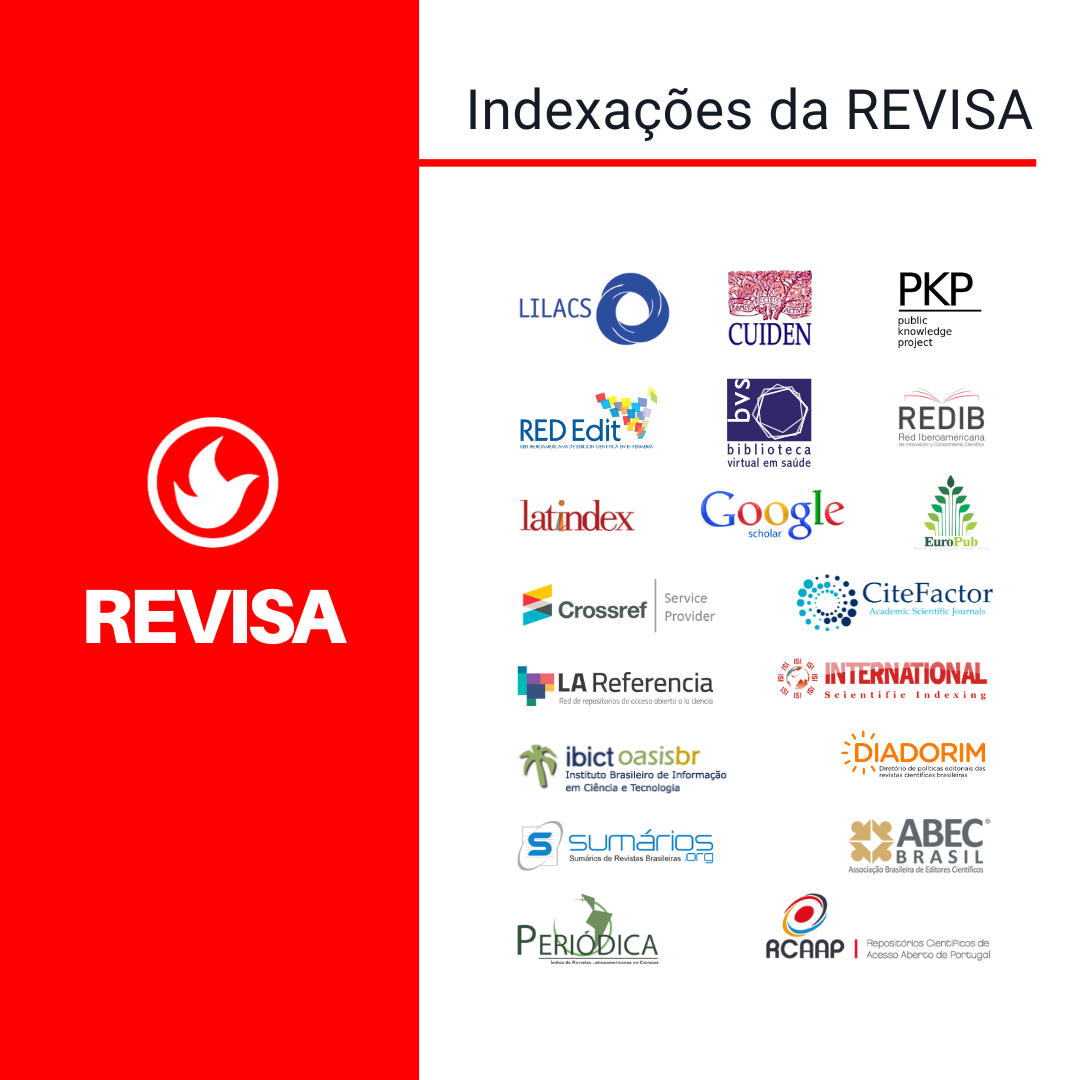The importance of scientific information in education for the prevention of viral infectocontagious diseases
Keywords:
Hygiene practices, Education, Infectious diseases, H1N1, COVID-19Abstract
Objective: to guide students of elementary and high-school levels at CED07-Ceilândia/DF on the importance of hygiene practices in favor of preventing against infectious diseases. Method: the study was designed in three distinct phases: application of questionnaires about personal hygiene; lectures and practical workshops on human pathologies; and evaluation of the project by participating students. Results: The results show that 57% of the students share personal items, a considerably high number since the literature points out that there are several pathologies that can be acquired using individual objects. It was also noted that students are not in the habit of removing their shoes before entering their homes. They claimed that they were unaware of the risks of contamination through this behavior, but stated that, after the information provided by the project, they would be more attentive to this home contamination factor. Thus, it is believed that the educational and informational practices on the proposed theme were relevant, as students reported that they learned from the developed activities and were willing to change their behavior regarding hygiene practices. Conclusion: The study also demonstrates that such practices contribute to disease prevention through simple measures, such as better personal hygiene, which is essential for public health, since many serious diseases can have reduced contamination rate only with educational guidelines and correct hygiene practices.
References
Elston DM, Gibson LE, Kutzner H. Infectious diseases. In: Handbook of Practical Immunohistochemistry: Frequently Asked Questions. 2015.
World Health Organization. Prioritization of pathogens to guide discovery, research and development of new antibiotics for drug resistant bacterial infections, including tuberculosis. Essential medicines and health products. 2017.
Centres for Disease Control and Prevention (CDC). Types of Influenza Viruses - Seasonal Influenza (Flu). Centres for Disease Control and Prevention. 2017.
Leung NHL, Chu DKW, Shiu EYC, Chan KH, McDevitt JJ, Hau BJP, et al. Respiratory virus shedding in exhaled breath and efficacy of face masks. Nat Med. 2020;
Unicef. A Human Rights-Based Approach to Education for All. Practice. 2007.
Brasil. Decreto no 6286, de 5 de Dezembro de 2007. 5 De Desembro 2007.
Mbakaya BC, Lee PH, Lee RLT. Hand hygiene intervention strategies to reduce diarrhoea and respiratory infections among schoolchildren in developing countries: A systematic review. International Journal of Environmental Research and Public Health. 2017.
Ejemot-Nwadiaro RI, Ehiri JE, Arikpo D, Meremikwu MM, Critchley JA. Hand washing promotion for preventing diarrhoea. Cochrane Database of Systematic Reviews. 2015.
B. A, E. M, S.B. N, S. D, W. G, P. B, et al. Production of the WHO-recommended alcohol-based handrub formulations in 11 different sites worldwide. Clinical Microbiology and Infection. 2009.
Wirfs MJ. Influenza, Seasonal (Flu). In: The APRN and PA’s Complete Guide to Prescribing Drug Therapy. 2019.
Li W, Shi Z, Yu M, Ren W, Smith C, Epstein JH, et al. Bats are natural reservoirs of SARS-like coronaviruses. Science (80- ). 2005;
Lau SKP, Woo PCY, Li KSM, Huang Y, Tsoi HW, Wong BHL, et al. Severe acute respiratory syndrome coronavirus-like virus in Chinese horseshoe bats. Proc Natl Acad Sci U S A. 2005;
Velavan TP, Meyer CG. The COVID-19 epidemic. Tropical Medicine and International Health. 2020.
Sohrabi C, Alsafi Z, O’Neill N, Khan M, Kerwan A, Al-Jabir A, et al. World Health Organization declares global emergency: A review of the 2019 novel coronavirus (COVID-19). International Journal of Surgery. 2020.
Dhama K, Khan S, Tiwari R, Sircar S, Bhat S, Malik YS, et al. Coronavirus disease 2019–COVID-19. Clin Microbiol Rev. 2020;
Aftab R. Coronavirus (COVID-19). InnovAiT Educ Inspir Gen Pract. 2020;
WHO. COVID-19 situation report 29. Coronavirus Dis 2019. 2020;
Brasil. Ministério da Saúde. Infecção Humana pelo Novo Coronavírus (2019-nCoV). Bol Epidemiológico. 2020;
Governo do Distrito Federal G. CNES: Estabelecimentos de Saúde. Secretaria de Estado de Saúde do Distrito Federal. 2019.
Falkenberg MB, Mendes T de PL, de Moraes EP, de Souza EM. Educação em saúde e educação na saúde: Conceitos e implicações para a saúde coletiva. Cienc e Saude Coletiva. 2014;
Harding DP, Raizada MN. Controlling weeds with fungi, bacteria and viruses: A review. Frontiers in Plant Science. 2015.
Saffari M, Koenig HG, Pakpour AH, Sanaeinasab H, Jahan HR, Sehlo MG. Personal hygiene among military personnel: Developing and testing a self-administered scale. Environ Health Prev Med. 2014;
Lesmes VIS, Ramírez OJG, Parrado YM, Hernández-Rodríguez P, Gomez AP. Characterization of hygiene habits and environments in children’s care homes. Rev da Esc Enferm. 2017;
Sabeena S, Bhat P, Kamath V, Arunkumar G. Possible non-sexual modes of transmission of human papilloma virus. Journal of Obstetrics and Gynaecology Research. 2017.
Rashid T, Poblete K, Amadio J, Hasan I, Begum K, Alam MJ, et al. Evaluation of a shoe sole UVC device to reduce pathogen colonization on floors, surfaces and patients. J Hosp Infect. 2018;
Tuma, J. M., & Pratt, J. M. (1982). Clinical child psychology practice and training: A survey. ldots of Clinical Child & Adolescent Psychology, 137(August 2012) 37–41. http://doi.org/10.1037/a0022390
Downloads
Published
How to Cite
Issue
Section
License
Copyright (c) 2024 Revista de Divulgação Científica Sena Aires

This work is licensed under a Creative Commons Attribution 4.0 International License.
-
Atribuição — Você deve dar o crédito apropriado, prover um link para a licença e indicar se mudanças foram feitas. Você deve fazê-lo em qualquer circunstância razoável, mas de nenhuma maneira que sugira que o licenciante apoia você ou o seu uso.
- Sem restrições adicionais — Você não pode aplicar termos jurídicos ou medidas de caráter tecnológico que restrinjam legalmente outros de fazerem algo que a licença permita.





